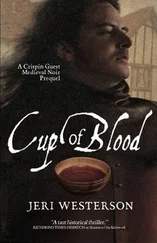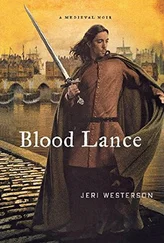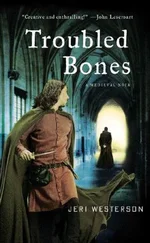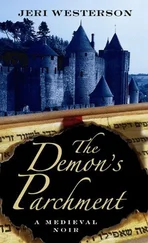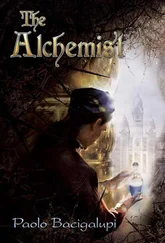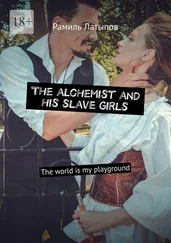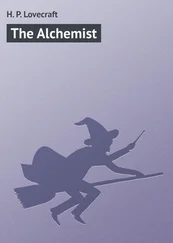Jeri Westerson - Shadow of the Alchemist
Здесь есть возможность читать онлайн «Jeri Westerson - Shadow of the Alchemist» весь текст электронной книги совершенно бесплатно (целиком полную версию без сокращений). В некоторых случаях можно слушать аудио, скачать через торрент в формате fb2 и присутствует краткое содержание. Год выпуска: 2013, Издательство: St. Martin, Жанр: Исторический детектив, на английском языке. Описание произведения, (предисловие) а так же отзывы посетителей доступны на портале библиотеки ЛибКат.
- Название:Shadow of the Alchemist
- Автор:
- Издательство:St. Martin
- Жанр:
- Год:2013
- ISBN:нет данных
- Рейтинг книги:3 / 5. Голосов: 1
-
Избранное:Добавить в избранное
- Отзывы:
-
Ваша оценка:
- 60
- 1
- 2
- 3
- 4
- 5
Shadow of the Alchemist: краткое содержание, описание и аннотация
Предлагаем к чтению аннотацию, описание, краткое содержание или предисловие (зависит от того, что написал сам автор книги «Shadow of the Alchemist»). Если вы не нашли необходимую информацию о книге — напишите в комментариях, мы постараемся отыскать её.
Shadow of the Alchemist — читать онлайн бесплатно полную книгу (весь текст) целиком
Ниже представлен текст книги, разбитый по страницам. Система сохранения места последней прочитанной страницы, позволяет с удобством читать онлайн бесплатно книгу «Shadow of the Alchemist», без необходимости каждый раз заново искать на чём Вы остановились. Поставьте закладку, и сможете в любой момент перейти на страницу, на которой закончили чтение.
Интервал:
Закладка:
“Is this the house in mourning?” he asked of the young woman. The walls had been hung with cloth, and shelves were stocked with bolts of varied weaves and colors.
“Aye, sir,” she said sadly. “My younger brother. Three days ago.”
A baby cried in the next room, a lusty, healthy cry.
She looked in that direction, raising her chin. “My other brother.”
“Has anyone else taken sick?” Her wary expression gave him pause. “My apologies, damosel. I don’t ask out of prurient interest. I am Crispin Guest. You may have heard of me. I am called the Tracker.”
Her eyes widened. “I shall fetch my father.”
She departed through the other door, and he was uncertain as to whether this was a good sign or not. Presently a man emerged. His tunic was covered in bits of varied-colored threads cast off during his time at the loom. “My daughter said you were that Tracker man we hear tell about. Is this true?”
He bowed. “It is, good Master. Can you tell me about your son’s illness?”
“Are you investigating that ? Don’t waste your time. It was a sickness that took my boy. If it were anything but God’s will, I’d have called in the sheriffs.”
“It is merely my own fancy that leads me here. And the priest Father Edmund. And so. Can you tell me of his illness?”
The man shook his head and becrossed himself. “It was sudden-like. Over before it began. He felt unwell, too sick to work. A bad stomach. He was a good lad, God preserve him, not like to shirk, even though he had always been a slight lad. He got worse, over a span of two days. And then it was done.”
“Did anyone else feel unwell?”
“Well, Mary, here,” he said, motioning toward his daughter. “Headache and bellyache. But she felt better after the cure. But no one else.”
“Cure?”
“Mother said it would settle my belly,” she said. “Drank raw eggs and chewed garlic.”
Crispin winced. “I see. A good cure, then.” He touched her chin to look at her face. She still looked listless but did not seem worse for wear. He let her go. “I am heartily sorry for your loss. I pray that all will be well.”
“God’s blessings on you, sir.”
He left a coin with them for their loss, looking back at the humble shop as they closed the door. Nothing unusual about it. And as he visited three more homes, he heard much the same. The elderly had died, grandfathers and grandmothers. The youngest ones were also afflicted, especially the weakest. Yet the babes in swaddling or toddlers went unaffected. Nor did anyone else in the household feel ill or aggrieved, except by their great loss.
Something was tapping at the back of his mind, and the notion emerged once again that it sounded to him like a poisoning. But why on earth target those humble people? None of them were important, they did not know one another, and they did no harm. They had nothing in common except as hardworking citizens. What good would it do to kill the children of a weaver, a corn merchant, or a chandler? Or any number of these others on his list that he had not yet talked to?
He walked slowly through the streets, ignoring those around him to immerse himself in his thoughts, or, as he had told Jack, to walk through the facts.
The youngsters or elderly. As long as they were the weakest. But by far, most were children.
He sat on a stone step that led to the cistern near Cornhill. Christ, but he was tired. He ran his hand through his hair under his hood and leaned back against a post. Absently, he watched a boy trying to lift his coneys away from the yapping of a dog at his heels. Two nuns walked side by side, the wet hems of their brown habits rippling over patchy snow. Water carriers hurried up and down the steps, giving Crispin a sneer as they skirted past him, for Crispin sat in their way. Heavy yokes burdened their shoulders, each with a heavy water skin hanging from either end. Boys like these were paid to quickly fill their buckets from the cisterns throughout the city, for the water of the Thames was not fit to drink, with its privies and butchering stalls along its banks.
An old man was moving a hog through the streets and he beat it as the pig stopped near a turnip seller’s cart and began rooting through it. An argument ensued between the pig man and the turnip dealer, and Crispin watched dispassionately, wondering idly if it would come to blows.
He had rested enough and was ready to depart until he saw a cluster of small children running up to the cistern. Each took a drink from the ladle that was there and then let it fall again into the font. One of the children, the smallest, wasn’t running as fast as the others and had to stop to catch his breath before he hurried to keep up. He did not look well.
A notion struck Crispin. A foul, diabolical notion. He looked back at the water carriers trudging to their duties. Others, maids and housewives, also moved under the burden of heavy buckets or skins swollen with chilled water from the cistern.
No.
Crispin leapt to his feet and ran back the way he had come, knocked on the doors of the grieving houses he had only just visited to ask one question: Which cistern did they use to get their water?
Each section of London had its own cistern. There was the Standard down Cheap, where Crispin got his water, and the Mercery near the hospital of St. Thomas of Acon, and the Tun up Cornhill way, and numerous other smaller cisterns and conduits. Some of the wealthier patrons even had running water through pipes, a rare innovation stolen from the ancient Romans, as Crispin had seen in his younger days in Bath and in Lancaster’s castles.
But the three families afflicted used the water from the Tun. Crispin looked down at the parchment in his hand. Unmindful of the stares, he raced down the lane in search of the others.
His suspicions were confirmed. All the families with losses had partaken of the cistern at the Tun. And only those who most frequently drank of the water-the youngsters and a few elderly-took sick and died. Babes in swaddling and toddlers did not, for they suckled at their mother’s breasts. And the rest of the family consumed ale.
As diabolical as it seemed, someone had poisoned the cistern.
14
Crispin stood in the lane, a sense of helplessness dragging at his limbs. How could he stop such a horrific scheme? To whom could he go?
He thought of Henry but did not know how to find him. The sheriffs, then. His only hope in the matter.
He trotted toward Newgate, weaving in and out among the people along the busy avenue and up and around alleyways. When he arrived at last to the stone gate, he straightened his clothes and dusted the snow from his shoulders. His feet were wet and cold, but there was nothing to be done. He approached the two guards and nodded to them. “Are the sheriffs in?”
One of the serjeants, Tom Merton, cocked back his kettle helm. He looked Crispin insolently up and down. He well knew that the majority of the sheriffs that passed through these doors did not favor Crispin’s presence.
“Why do you want to know, Guest?”
“Because I have important information to impart to them. Why else would I ever have cause to be here?”
“Well, you never know,” he said, picking his teeth with his dagger. “You are known to be a man to cause mischief.”
Crispin let the matter slide. He knew better than to engage the sheriffs’ henchmen. They were more brawn than brain.
“Are they in?” he tried again.
“To you? Not likely.” He sheathed his dagger and spit on the ground before Crispin’s boots. Stubbornly, he leaned on his pike and blocked the entrance. The other, Wendell Smythe, just as blunt-faced as his companion and standing by the brazier, laughed behind Crispin’s back.
Читать дальшеИнтервал:
Закладка:
Похожие книги на «Shadow of the Alchemist»
Представляем Вашему вниманию похожие книги на «Shadow of the Alchemist» списком для выбора. Мы отобрали схожую по названию и смыслу литературу в надежде предоставить читателям больше вариантов отыскать новые, интересные, ещё непрочитанные произведения.
Обсуждение, отзывы о книге «Shadow of the Alchemist» и просто собственные мнения читателей. Оставьте ваши комментарии, напишите, что Вы думаете о произведении, его смысле или главных героях. Укажите что конкретно понравилось, а что нет, и почему Вы так считаете.

